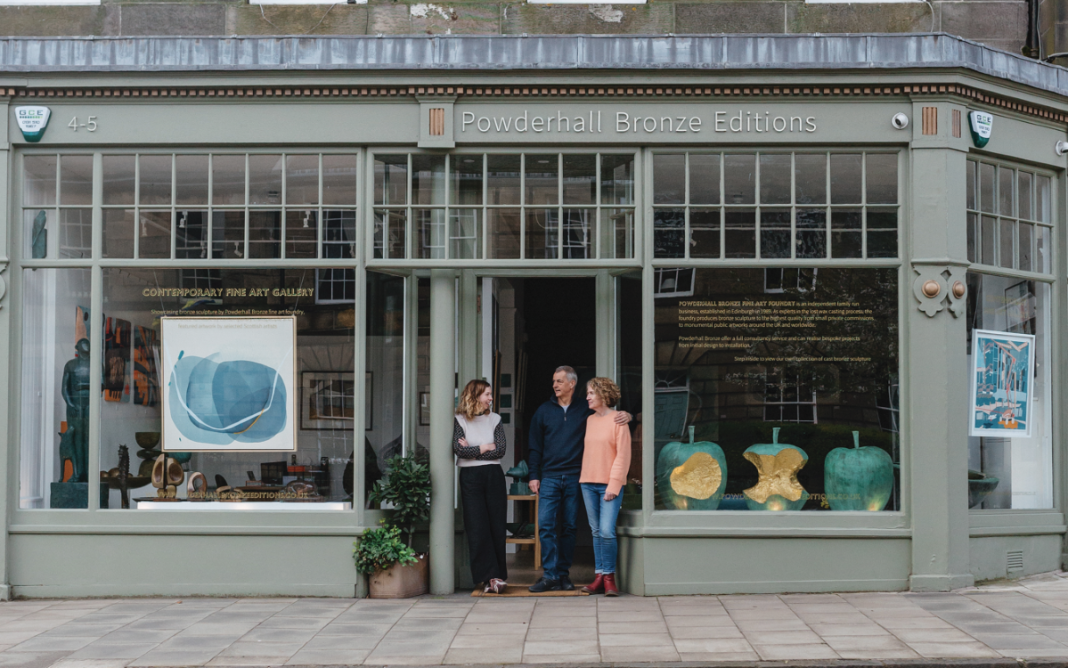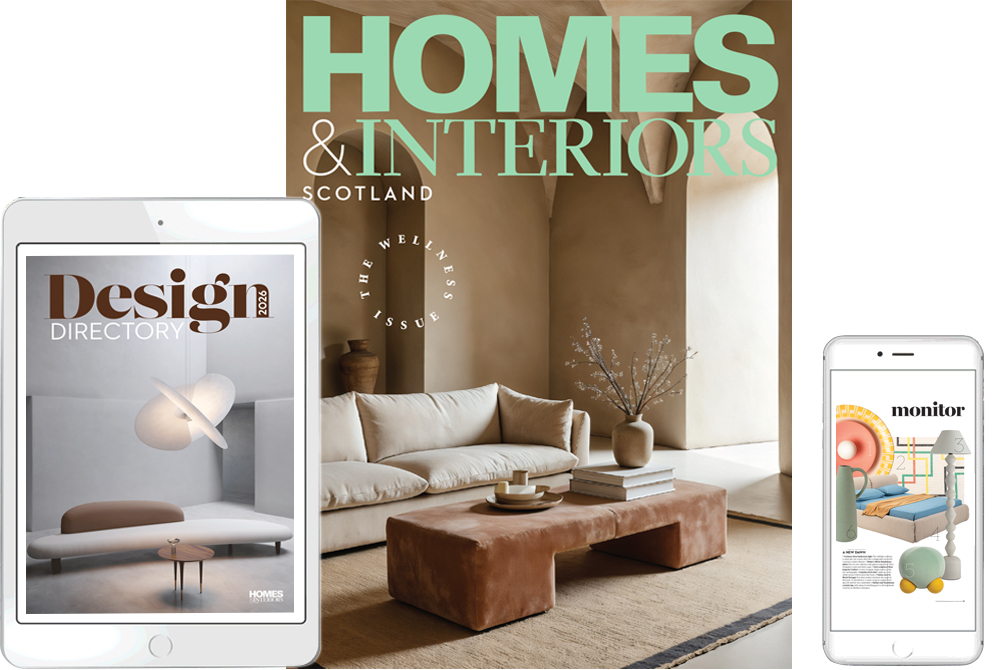We speak to Lucy Caster, an Edinburgh-based print and textile artist, to find out more about her work and the Powderhall Bronze space
Owners Kerry Hammond and Brian Caster established the foundry in 1989 and continue to run the business, now with the help of their daughter Lucy Caster.
We caught up with Lucy, herself a prolific print and textile artist, to find out more of the technical details.
What is Powderhall Bronze?
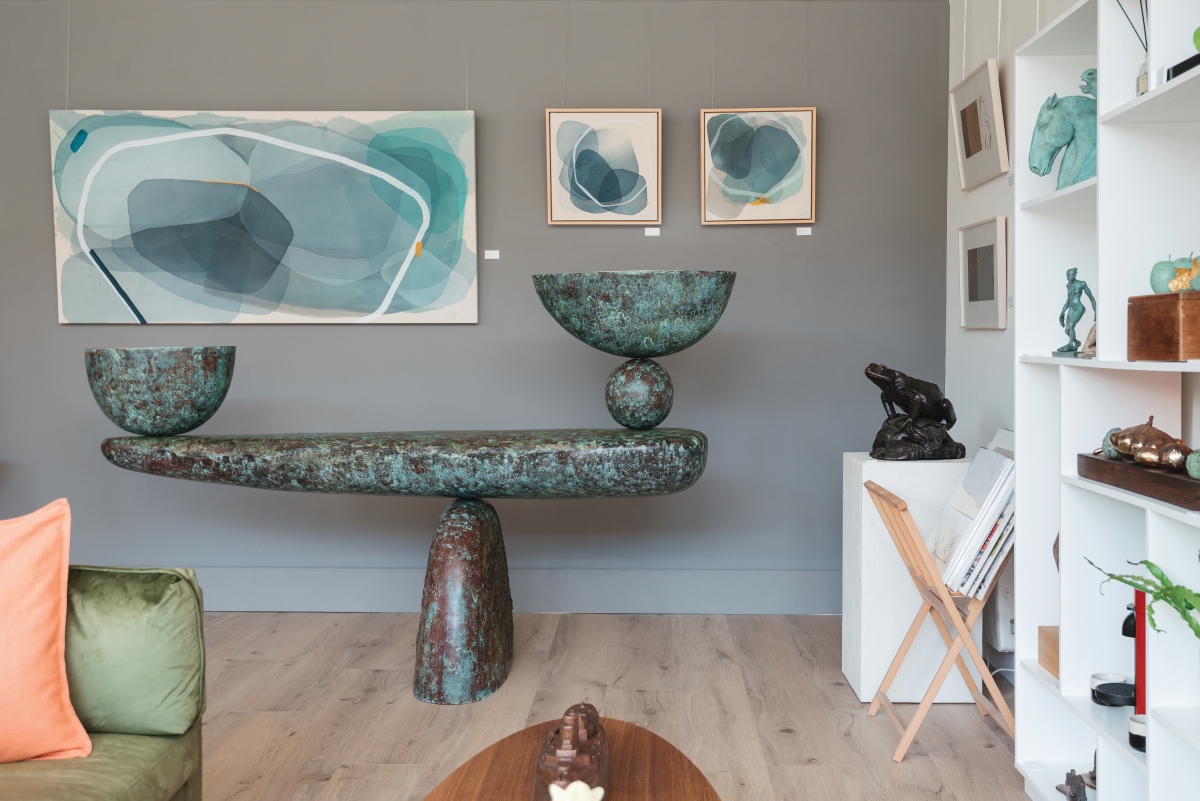
It’s a fine art foundry based in Edinburgh offering a casting service to practicing artists. We can cast anything from small handheld pieces up to monumental public commissions. Owners Kerry and Brian come from a fine art background themselves, so are able to have a dialogue with the artist and it’s very much a collaborative process. The artist is invited to come in at any stage to see how work is progressing.
We also offer a full creative consultancy and production service, taking artworks from the initial design stage all the way to final installation.
We probably do around 50% public artwork and 50% artist own work for galleries or private customers. We also usually have a few restoration projects on our job list at any time, ranging from small repairs to large scale restorations and re-patinations. We usually have around 70 different jobs in the foundry at any one time.
What have you worked on recently?
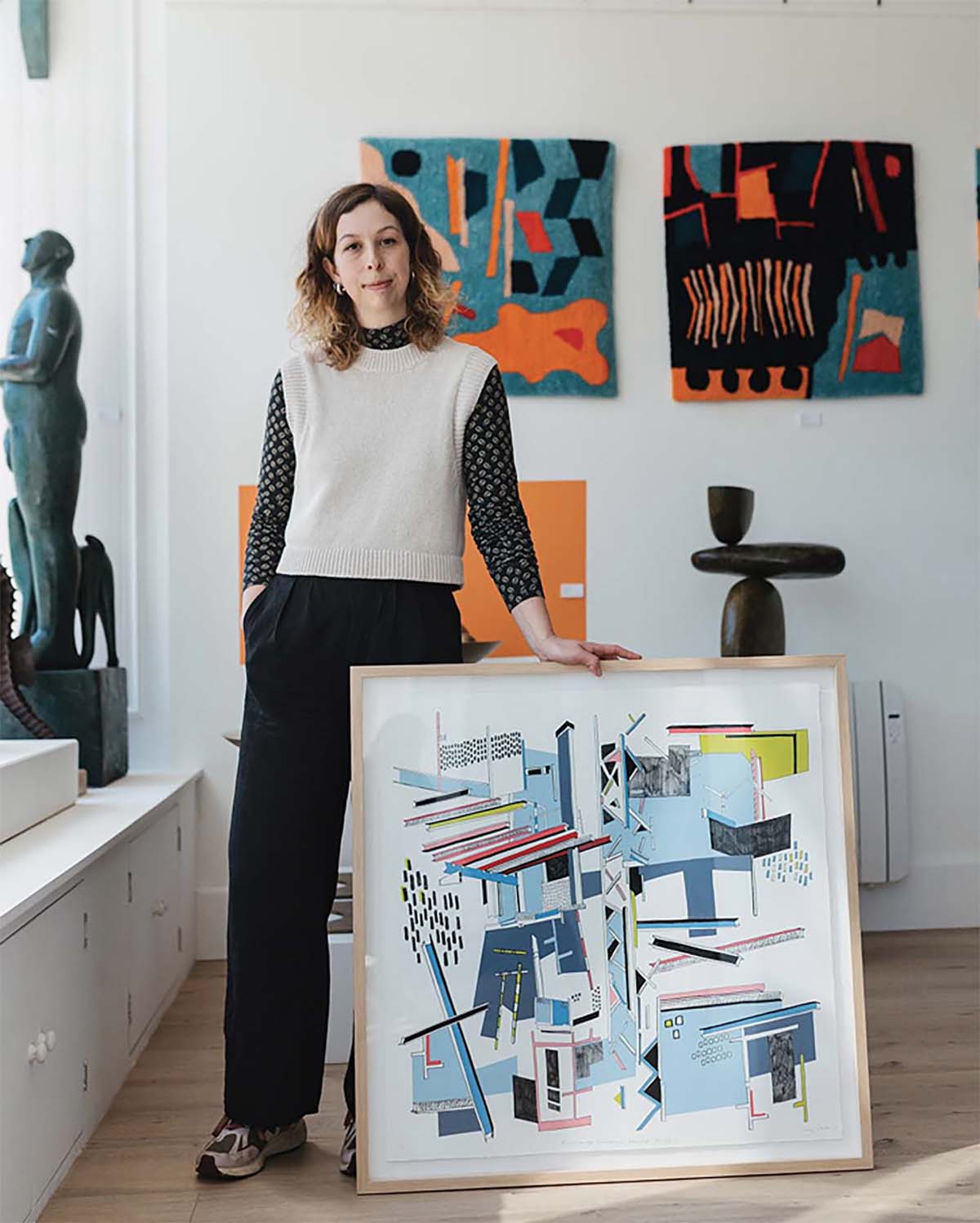
Loads! Some pretty fancy bronze handrails at the National Galleries of Scotland on Princes Street, Elm Row Pigeons by Shona Kinloch on Leith Walk, a 1.5x life-size Potato Picker by Archie Forrest for Albert Bartlett potatoes, a Jimmy Murphy statue by Alan Herriot which is now in place at Old Trafford… The list just goes on and on.
What is the basic process that a piece will go through in the foundry?
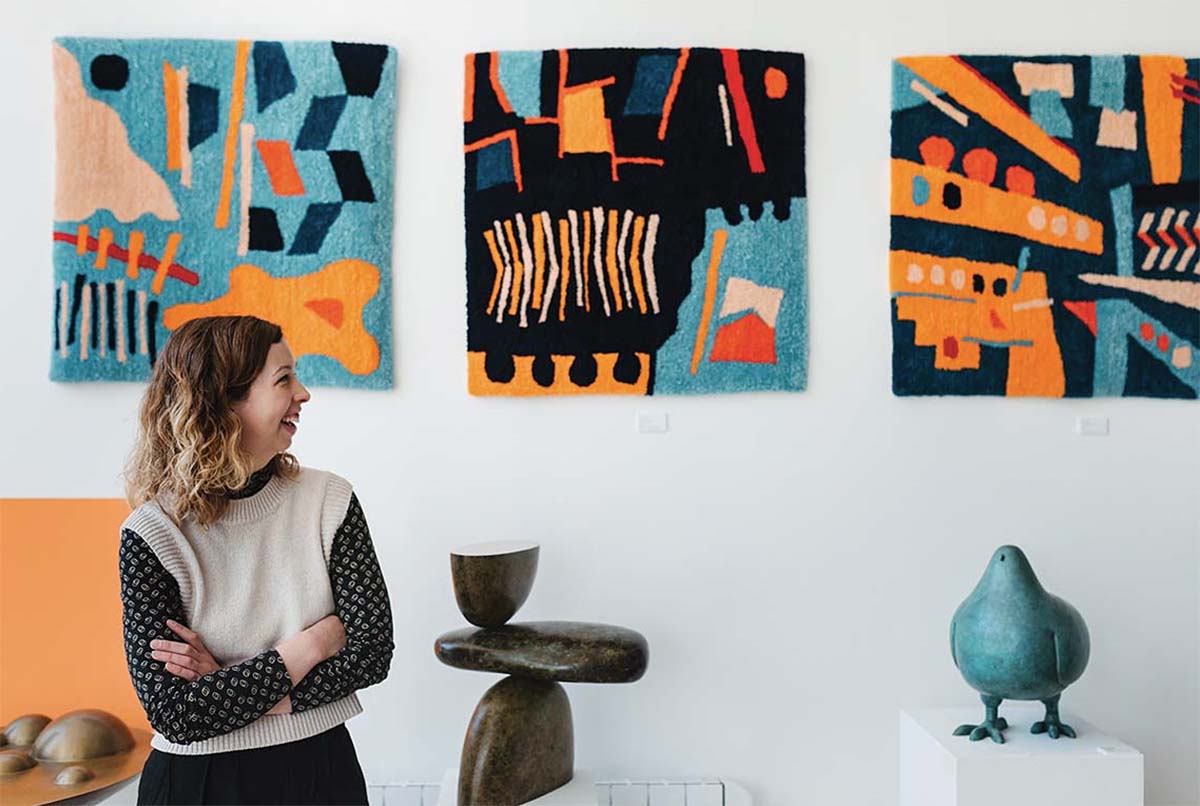
We use the lost wax casting process for the majority of projects that come through the door. This process is thousands of years old, and little has changed since then, apart from some updates in the materials used.
The short explanation is that you’re making a wax replica of the original artwork which will have a refractory material built around it. The wax will burn away when this is fired in a hot kiln, leaving a void and this is where the molten metal will be poured in.
Once the cast bronze (or other molten metal) has been exposed, we use welding, chasing and metalwork techniques to make the sculpture identical to the original artwork. Patination is added to the sculpture with the use of heat and chemicals.
What materials do you use most often?
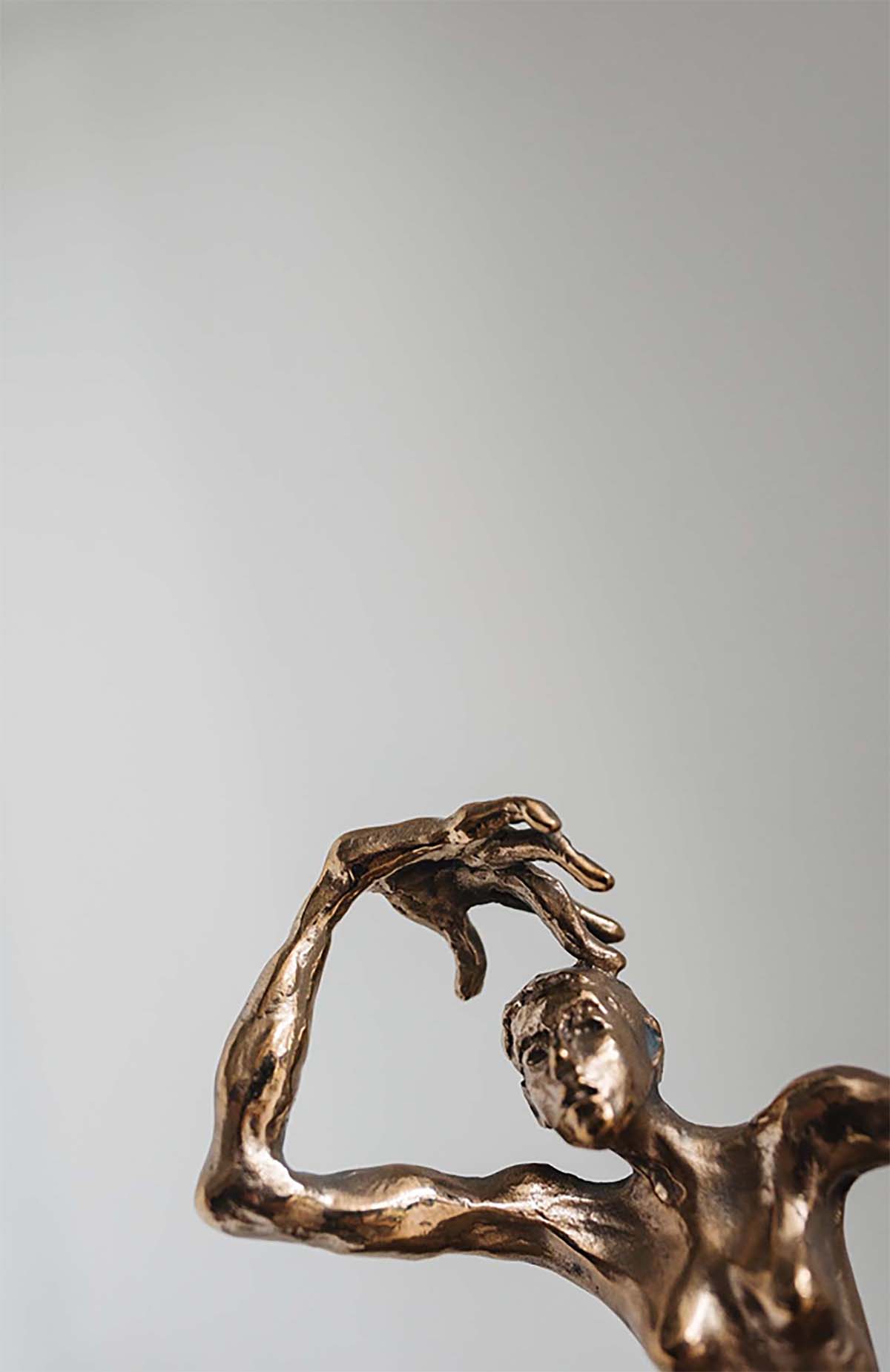
We cast most of our sculptures in bronze, however we do some aluminium casting (this is mainly for pieces which need to be lighter). We also do fabrication work, mainly luxury handrails or interior fittings, which is made of bronze rather than cast bronze.
During the lost wax casting process we use a variety of materials: silicone, rubber, plaster of Paris, casting wax, sand, and refractory materials like brick dust and plaster.
The bronze we buy in for casting is all recycled, and all our offcuts get remelted or recycled so there’s no waste. The same is true for our refractory material and sand.
What’s the strangest material you’ve used in a piece?
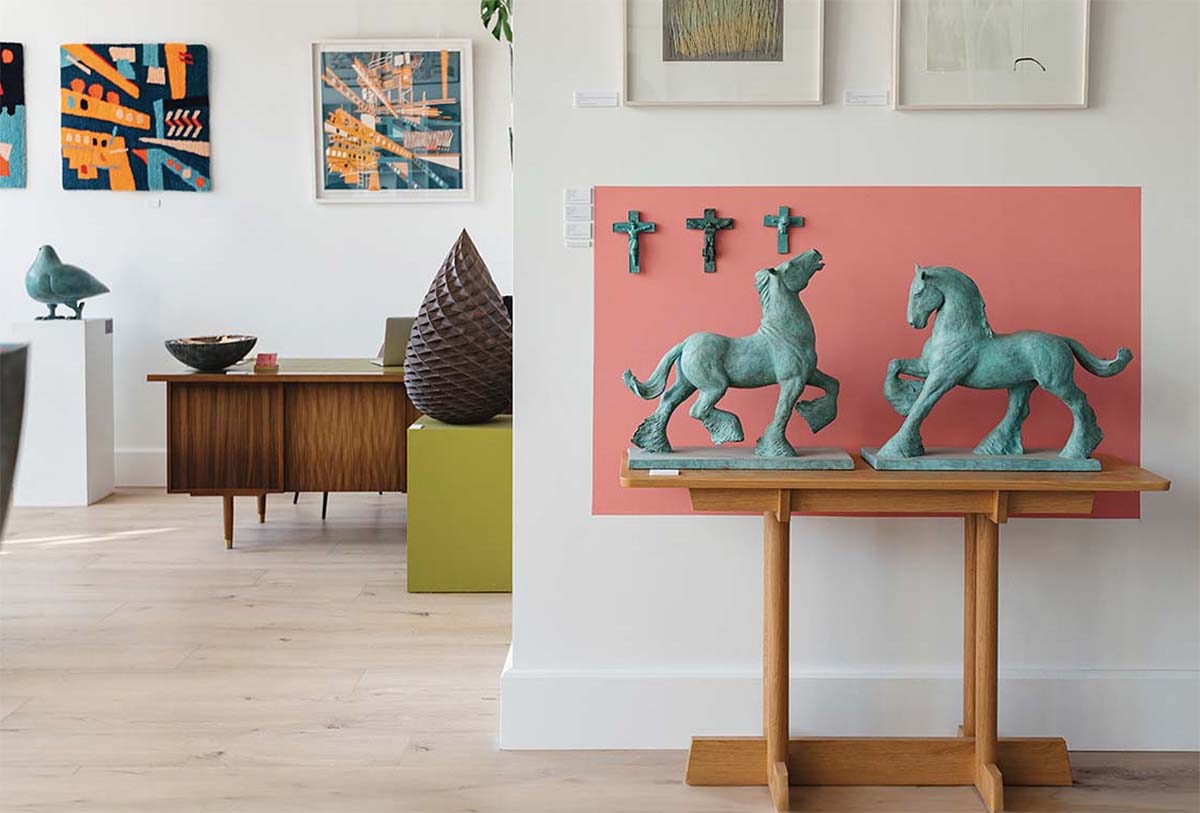
We once made a cast of a cow by making a mould of a real taxidermised cow!
We’re sometimes asked to cast natural materials which is a really nice technique. In this case, we don’t need to make a wax replica as we can directly burn away materials like twigs or fruit in the kiln. This picks up lovely details in the bronze.
Can we come and look around?
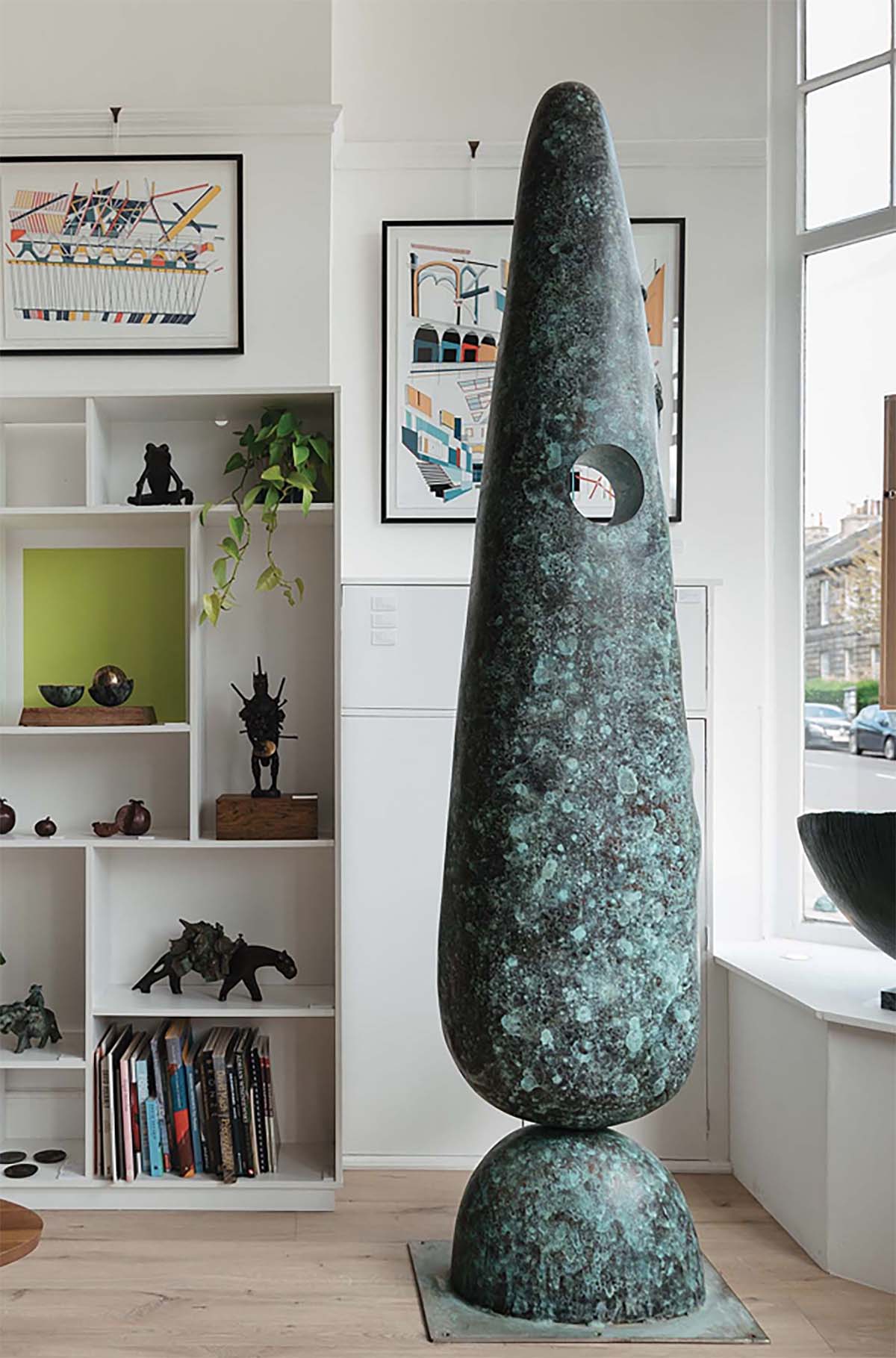
Yes! We have foundry tours which have become very popular. We get a nice mixture of people: locals who have always known about us, new gallery customers who have bought a piece and want to learn more about how it was made, art lovers from further afield, creatives who work in other materials and already have a basic understanding of the casting process. We also get people of all ages which is really fun.
Is there anywhere else we can see Powderhall Bronze’s work?
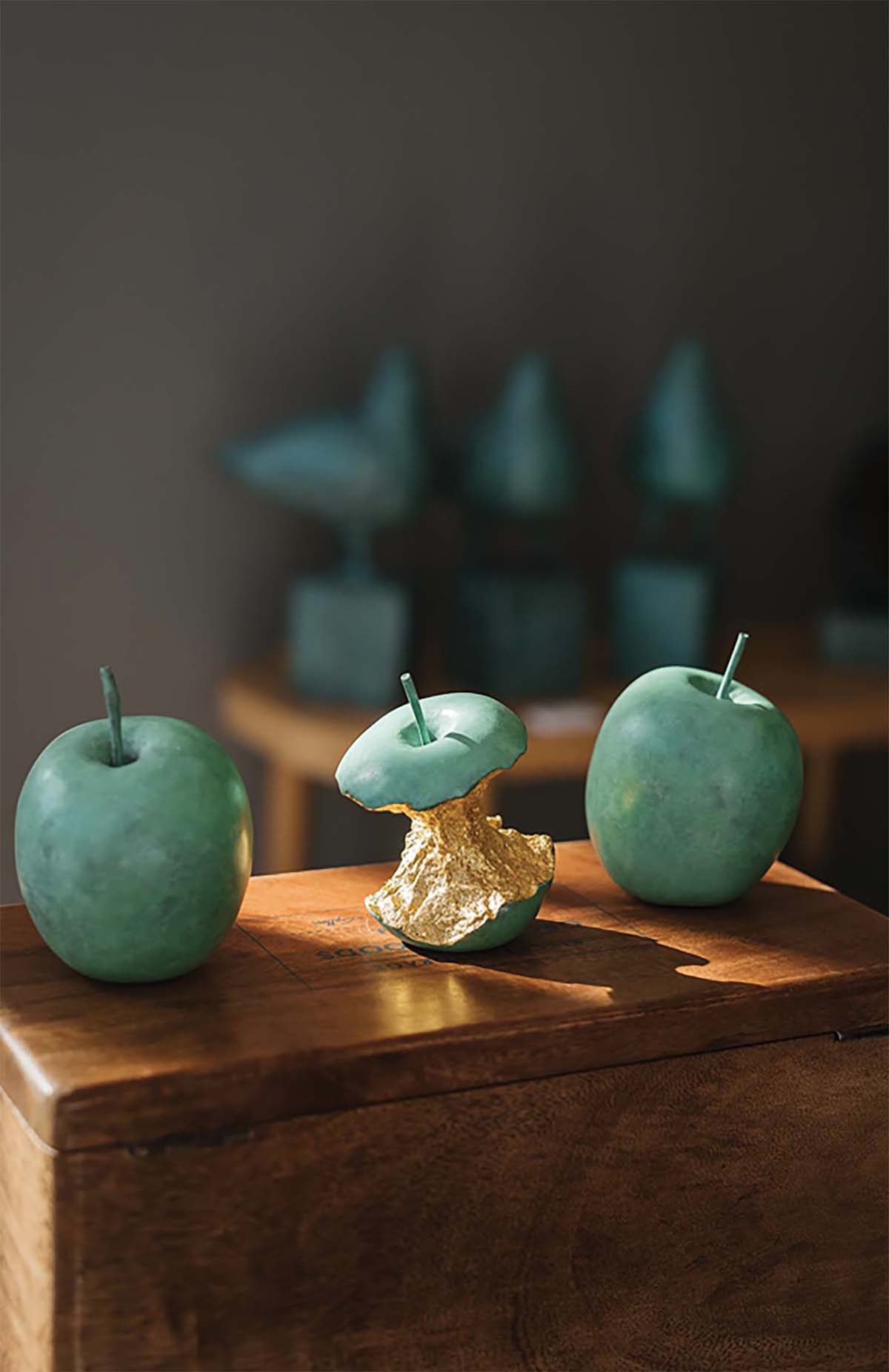
We have a gallery nearby [Powderhall Bronze Editions on Summer Place, Edinburgh] which has a much more relaxed vibe. The foundry is an exciting environment but it’s great to be able to take the finished sculptures away from the chaos and place them into the peaceful gallery setting.
The gallery is set up to be an aspirational living setting, with the idea being that we can suggest ways for people to integrate sculpture into their own home. We also get to display some of the pieces created by us and the creative people who work for Powderhall.
I think a big part of it was us all pushing each other to create our own work and it’s been so fun working on the new endeavour of the gallery together. We all have similar taste in art, so we’ve been lucky to fill the gallery with pieces that we are really passionate about. It’s also a great motivation to keep making our own work since we now have the perfect place to exhibit (and hopefully sell) it!
Powderhall Bronze
18-19 West Harbour Road
Edinburgh
EH5 1PN
Visit the Powderhall Bronze website | Follow Powderhall Bronze on Facebook | Follow Powderhall Bronze on Insatgram


